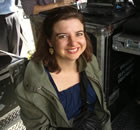 ‘My 2009 monograph outlined in considerable detail the history, theory and status of peer recovery support services (PRSS) in the United States. In the years since the monograph’s publication, voluntary and paid recovery support services have dramatically increased in the US and internationally.
‘My 2009 monograph outlined in considerable detail the history, theory and status of peer recovery support services (PRSS) in the United States. In the years since the monograph’s publication, voluntary and paid recovery support services have dramatically increased in the US and internationally.
Such growth has recently prompted me to reflect on the pre-professional days of addiction counseling in the United States (1965-1975) when people in recovery constituted the core workforce within newly arising addiction treatment programs.
The current expansion of PRSS raised the following question: What experiential lessons from this earlier era could inform the present implementation of PRSS? Here are my top 20 answers.




